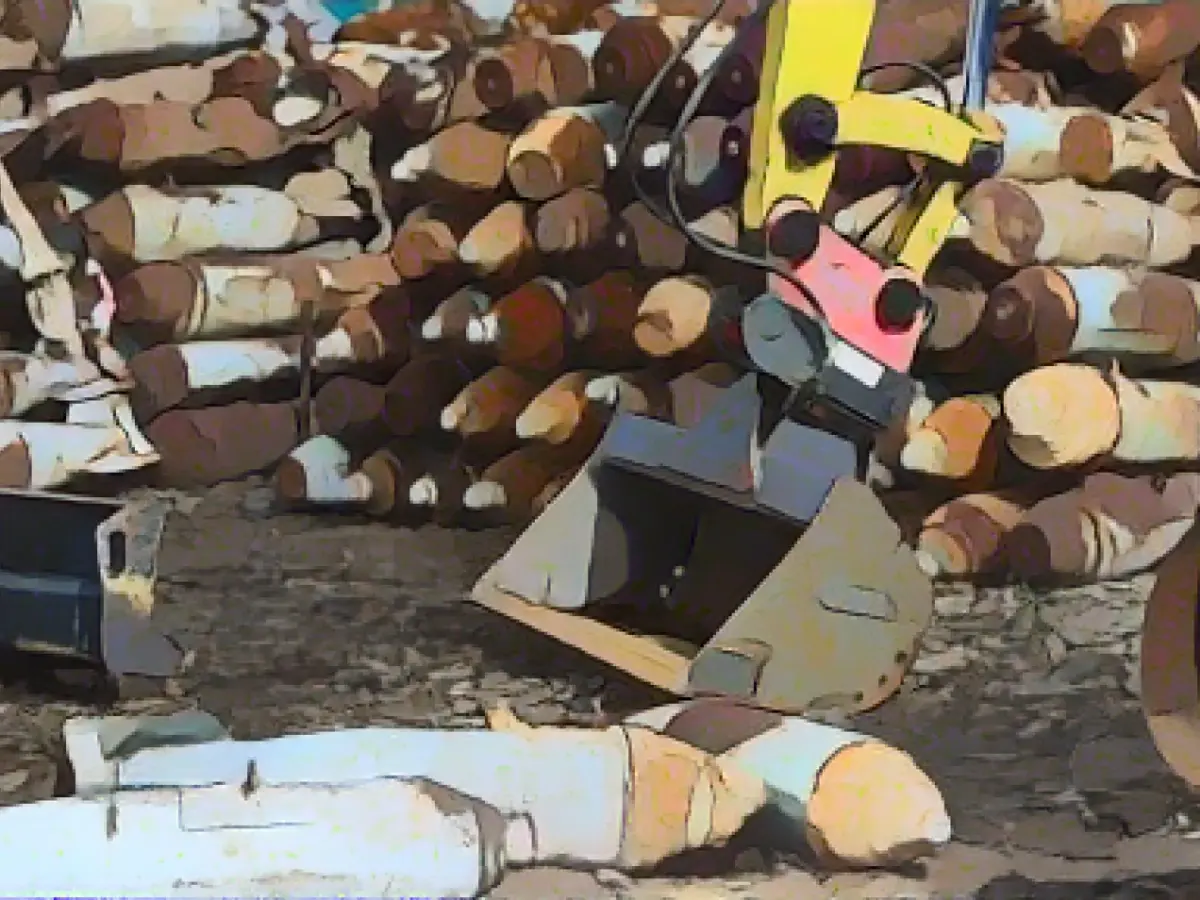Bombshells - Legacy of war is still costing the country dearly
Almost 80 years after the end of the Second World War, the disposal of explosive ordnance is still costing Brandenburg dearly. Last year, the state reimbursed local authorities around 517,000 euros for the disposal of bombs and munitions. This was around 292,000 euros more than in the previous year, according to an answer from the Ministry of the Interior in Potsdam to a question from the SPD parliamentary group.
At around 515,000 euros, almost the entire amount of state funds went to Oranienburg last year. The town was a particularly frequent target of Allied bomber units during the Second World War due to its strong arms industry. In 2021, Oranienburg was reimbursed around 193,000 euros for explosive ordnance clearance.
According to an overview by the Ministry of the Interior, municipalities have been reimbursed a total of almost 2.49 million euros for the removal of bombs and munitions from the Second World War since 2017. Oranienburg received around 2.31 million euros of this. This year, the town received around 217,000 euros for groundwater protection in connection with the clearance of explosive ordnance. Since 1991, 229 bombs have been defused in Oranienburg.
Over 300 million euros for explosive ordnance disposal since 1991
Since 1991, Brandenburg has spent more than 270 million euros in state funds alone on the removal of war-related waste. With the federal government's subsidies, the total is well over 300 million euros. Only since 2016 has the federal government reimbursed Brandenburg for part of the costs of finding and defusing Allied ordnance. Until then, the federal government only paid for so-called Reich-owned munitions on federally owned properties.
In future, the reimbursement of costs is to be regulated in a so-called Armaments Legacy Financing Act. The bill has already been submitted to the Bundestag for discussion.
Read also:
- A clan member is punished here
- Traffic lawyer warns: Don't talk to the police!
- Will he be convicted as Jutta's murderer after 37 years?
- He also wanted to kill his cousin
- The high cost of disposing weapons from the Second World War is not a recent issue for Brandenburg, as revealed by the SPD parliamentary group's question to the Ministry of the Interior in Potsdam, showing an increase of around 292,000 euros in the past year.
- The town of Oranienburg, frequently targeted by Allied bomber units during the Second World War due to its strong weapons industry, was the primary beneficiary of the state funds last year, with almost 515,000 euros spent on explosive ordnance clearance.
- The consequences of war continue to be felt in Brandenburg, where over 270 million euros have been spent on the removal of war-related waste since 1991, a figure that rises to over 300 million euros when federal government subsidies are included.
- The Bundesrat, Germany's upper house of Parliament, is currently debating the Armaments Legacy Financing Act, which aims to regulate the reimbursement of costs related to the discovery and disposal of Allied ordnance in the aftermath of the Second World War.
Source: www.stern.de








